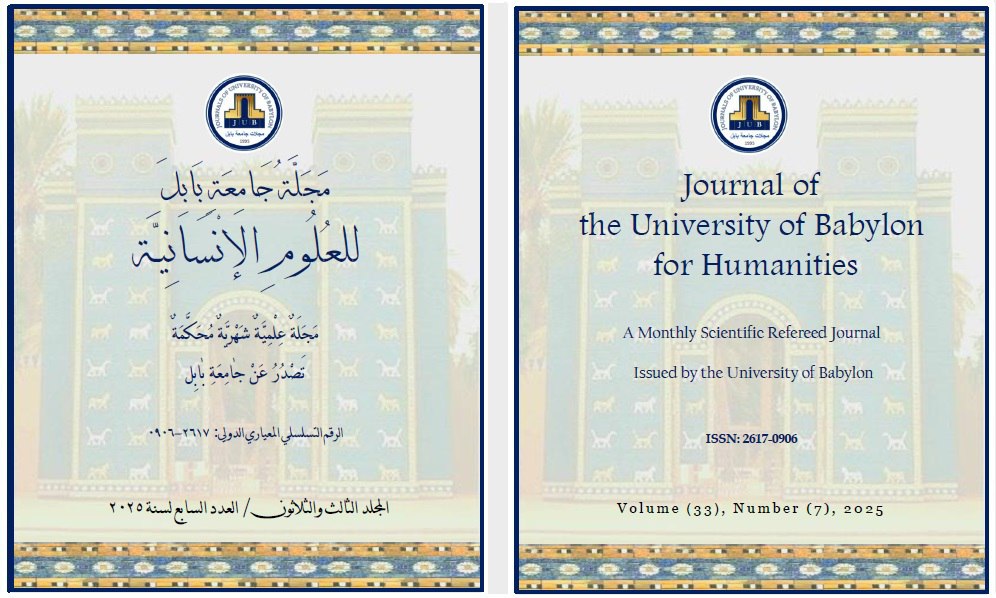The Contradiction in the Grammatical Opinions of Abu Hayyan al-Andalusi
Main Article Content
Abstract
The study aims at clarifying the meaning of grammatical contradiction and its effect on grammar. Grammatical contradiction means the existence of different and contracted opinions among grammarians in relation to a specific grammatical rule or concept. This contradiction may result from differences in understanding or interpreting texts or applying a rule. It does not only incorporate this, but it expanded till it reaches the contradiction of grammarians with themselves in adopting some opinions, so a grammarian may choose a view in a certain issue then he changes his opinion with respect to this issue, and chooses what he previously rejected. This contradiction can be in one book or between two or three books for the same grammarian. In this study, Abi-Hayaan’s opinions were distributed in three books: Al-Bahr Al-Muhit, Irtishaf Al-Darb, and Al-Tadhil wa Al-Takmil. Although these books have been characterized by elaboration in the grammatical field, at the beginning he starts speech about the vocabulary of the aya he wants to interpret, it becomes essential to appeal to the language and the grammatical rules of any mentioned word before construction. If the word has two meanings, he mentions that in its first position to know what meaning suits that word in that position form those meanings and converts what he mentions from the grammatical rules to the grammar books, but this does not mean that it is free of contradictions.
The study consists of two sections. The first section discusses issues related to nouns including a. preposing al- khabar on al-mubtadaa if the latter is singular or a clause, and preposing the non- pure relative noun clause over relative pronouns, b. the issue of showing the subject after the attached pronoun and the addition of masdar to the subject, c. the issue of deriving haal form the past verb form without associating it with ‘qad’ and d. the issue of the multiplicity of ‘irab’ aspects in the one issue. The second section includes: a. issues specific to verbs like the issue of ‘idh’ coming as object, and the issue of interpreting the affirmative verb with a negative one, b. issues specific to particles, like the issue of Hijazi ‘in’ and ‘ma’ as being equal in function, and the issue of the coming of ‘kaaf’ to denote reasoning, the issues of the coming of ‘kada’, ‘min’, and ‘waw’ as extra particles, the issue of using ‘law’ as infinitival meaning ‘aan’ and the issue of the coming of extra ‘fa’ on ‘khbar’ of ‘al-mubtada’
Article Details
Issue
Section

This work is licensed under a Creative Commons Attribution 4.0 International License.

